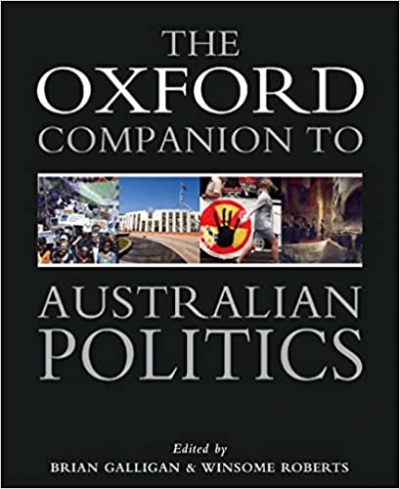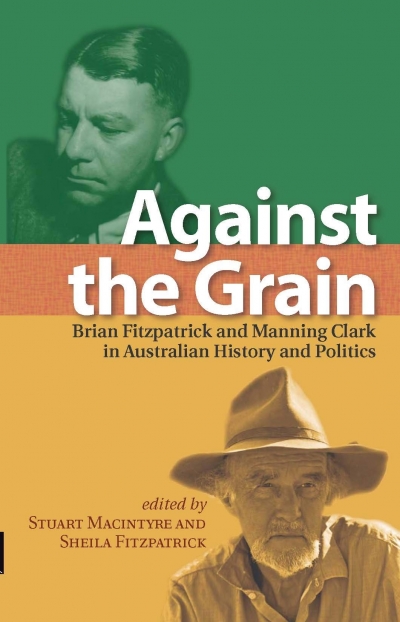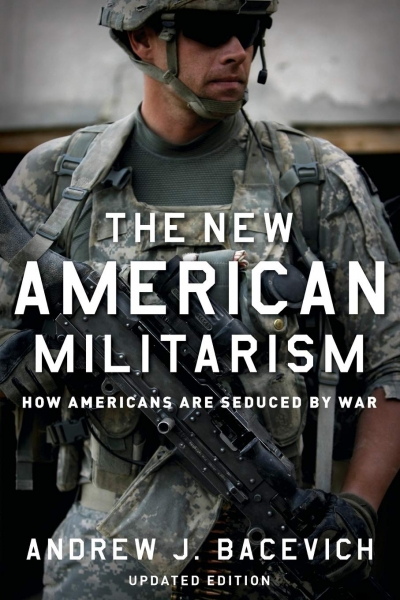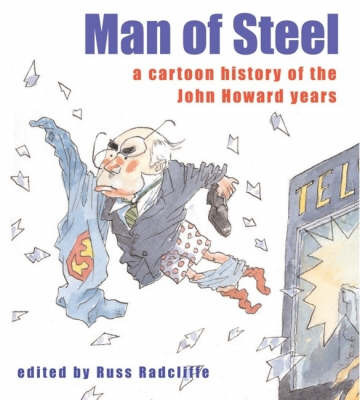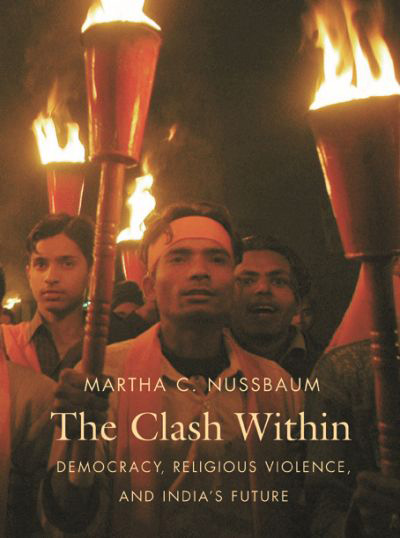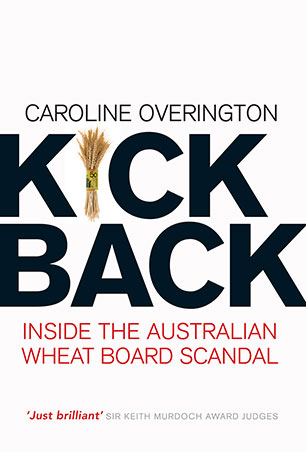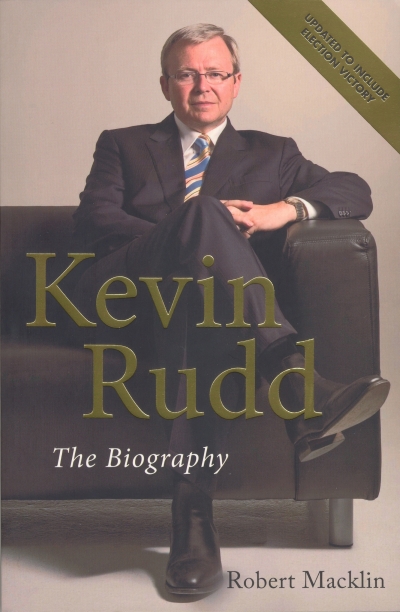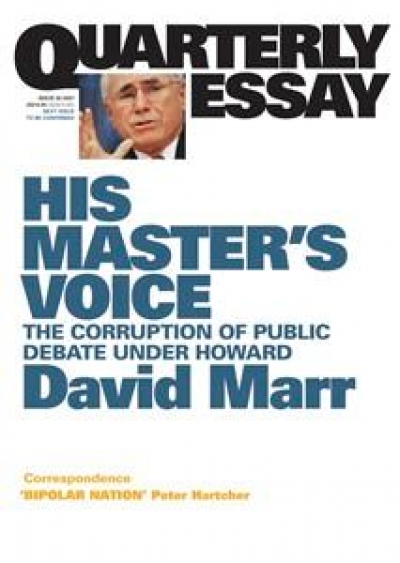Politics
The Oxford Companion to Australian Politics edited by Brian Galligan and Winsome Roberts
Quite when the figurative usage of ‘companion’ as ‘a work of reference ... that is presented as a friend to be consulted with whenever needed’ came into fashion is uncertain. I well remember my first companion, the third edition of the invaluable Oxford Companion to English Literature, from my student days in the 1950s. Oxford University Press now has a large stable of companions – some seventy titles at last count – covering everything from Christian thought to jazz to baroque music. The latest addition to the Oxford stable is a doorstopper: The Oxford Companion to Australian Politics (OCAP). Together with its sister volume, The Oxford Companion to Australian History, first published in 1998, it should become an indispensable, if expensive, tome in the library of any thinking Australian.
... (read more)Against the Grain: Brian Fitzpatrick and Manning Clark in Australian history and politics edited by Stuart Macintyre and Sheila Fitzpatrick
Against The Grain celebrates two iconoclastic Australian historians: Manning Clark and Brian Fitzpatrick. Comprising papers from a 2006 conference organised by two of their daughters, both distinguished academics, Against the Grain offers critical thoughts and reminiscences of family members, friends, colleagues, students and academic successors of the two men.
... (read more)The New American Militarism by Andrew J. Bacevich & Unintended Consequences by Kenneth J. Hagan and Ian J. Bickerton
Andrew Bacevich is a former West Point graduate, a principled man on the conservative side of politics who considered it wrong for wealthy citizens to leave the fighting of America’s wars to the poor and disadvantaged. He had fought in Vietnam, and his son, a newly commissioned second lieutenant in the United States Army, had volunteered for duty in Iraq. Just before Bacevich Sr was to attend the Sydney Writers’ Festival in June 2007, he received word that his son had been killed in Iraq. He cancelled his engagement in Sydney, and sent a poignant letter explaining his absence. It is a great pity that he was unable to come. The book that Bacevich was due to speak about is one of the most trenchant accounts I have read about contemporary American military culture. It should give any thinking Australian pause about the growing influence of American doctrine, strategy, training, equipment and choice of weapons over the Australian Defence Force.
... (read more)Man of Steel: A Cartoon history of the Howard years edited by Russ Radcliffe
If you look carefully at a political cartoon, the most remarkable thing is the quantity of latent information it depends on. Opening Russ Radcliffe’s collection from the Howard years at random, I spot something from one of the nation’s less fabled cartoonists, Vince O’Farrell of the Illawarra Mercury. It is a picture of a military aircraft marked Labor, barrelling along the ground. The pilot has a pointy nose and broad girth, and the co-pilot’s voice bubble tells us, ‘I say skipper … That’s the end of the runway and we still haven’t taken off’. The whole story of Bomber Beazley’s last, tortured term as Opposition leader is there in an image and a couple of words that takes only seconds to assimilate.
... (read more)East Timor’s former Prime Minister Mari Alkatiri has a knack of hiring international advisers who win access to his inner circle then publish tell-all books on leaving his employ. First there was Lynne Minion, whose Hello Missus: A Girl’s Own Guide to Foreign Affairs (2004) lampooned him mercilessly and sold like hot cakes. Now Paul Cleary follows the pattern, but in a more respectable book, worthy of serious attention.
... (read more)When the United States invaded Iraq, it invaded a country that posed no immediate threat to it. It did so at a time when the issue about weapons of mass destruction was in the process of being resolved by the United Nations’ investigations. It invaded a country that was not a major locus of al Qaeda activity (not then) and had played no role in 9/11. The invasion diverted America’s attention and resources from groups that were responsible for 9/11, undermined its moral authority in the international community and handed terrorists a propaganda weapon. True, a tyrant was deposed, but in a way that will breed more tyrants in the future. It is little wonder that so many commentators across the political spectrum have labelled the invasion America’s worst foreign policy decision.
... (read more)The Clash Within: Democracy, religious violence, and India's future by Martha C. Nassbaum
As the Ernst Freund Distinguished Service Professor of Law and Ethics at the University of Chicago, Martha Nussbaum’s confident intensity is underpinned by a dazzling range of scholarship – politics history, psychoanalysis, economics, development studies, constitutional law, archaeology, comparative religion, comparative ethnology, pedagogy, gender studies, ethics – all focused in this book on intellectually annihilating a particular minority, the Hindu religious right in India and its supporters in the United States. Nussbaum’s personal background explains her fervour. Her mother’s family descend from the Mayflower, her father was a conservative Southern lawyer, and the family lived the secure life of Philadelphia’s main line. Martha rejected these satisfactions: ‘I was ill at ease with my elite WASP heritage.’ She became involved in the civil rights movement, and converted to Judaism when she married a Jewish linguist whom she met in a class on Greek prose composition. ‘I had an intense desire to join the underdogs and to fight for justice in solidarity with them.’
... (read more)Kickback: Inside the Australian wheat board scandal by Caroline Overington
Perhaps the most enduring memory of the Australian Wheat Board’s Iraq misadventures is the picture of its paunchy former chairman, Trevor Flugge, stripped to the waist and pointing a gun at the camera. Flugge was in Iraq, to all intents and purposes representing Australia. Selected by the Australian government with a tax-free salary package of just under a million dollars, he was there because, in the prime minister’s words ‘our principal concern at the time was to stop American wheat from getting our markets’.
... (read more)Kevin Rudd by Robert Macklin & Kevin Rudd by Nicholas Stuart
One of the hazards of election years these days is the quickie biography of the latest Opposition leader. As Simon Crean missed out on an election, so he missed out on a quickie. On the other hand, in 2004 his successor Mark Latham scored two – or three if we include Michael Duffy’s comparative study of the two political bruisers Latham and Abbott. Not that it did Latham, or probably the reputation of the authors, much good.
... (read more)His Master’s Voice: The corruption of public debate under Howard (Quarterly Essay 26) by David Marr
The continued success and quality of the Quarterly Essay series has done much to promote the long essay as a legitimate forum for detailed, informed and accessible political discussion. That this has occurred during the Howard era suggests that all is not lost in the quest for genuine public debate. In the latest Quarterly Essay, David Marr acknowledges that, ‘[s]uppression is not systematic. There are no gulags for dissidents under Howard.’ Nevertheless, His Master’s Voice is born of, and fuelled by, exasperation. Marr makes little effort to mask his personal enmity towards John Howard. And his disgust at the manner in which the federal Coalition has governed for more than a decade is palpable: ‘Since 1996, Howard has cowed his critics, muffled the press, intimidated the ABC, gagged scientists, silenced non-government organisations, neutered Canberra’s mandarins, curtailed parliamentary scrutiny, censored the arts, banned books, criminalised protest and prosecuted whistleblowers.’
... (read more)

